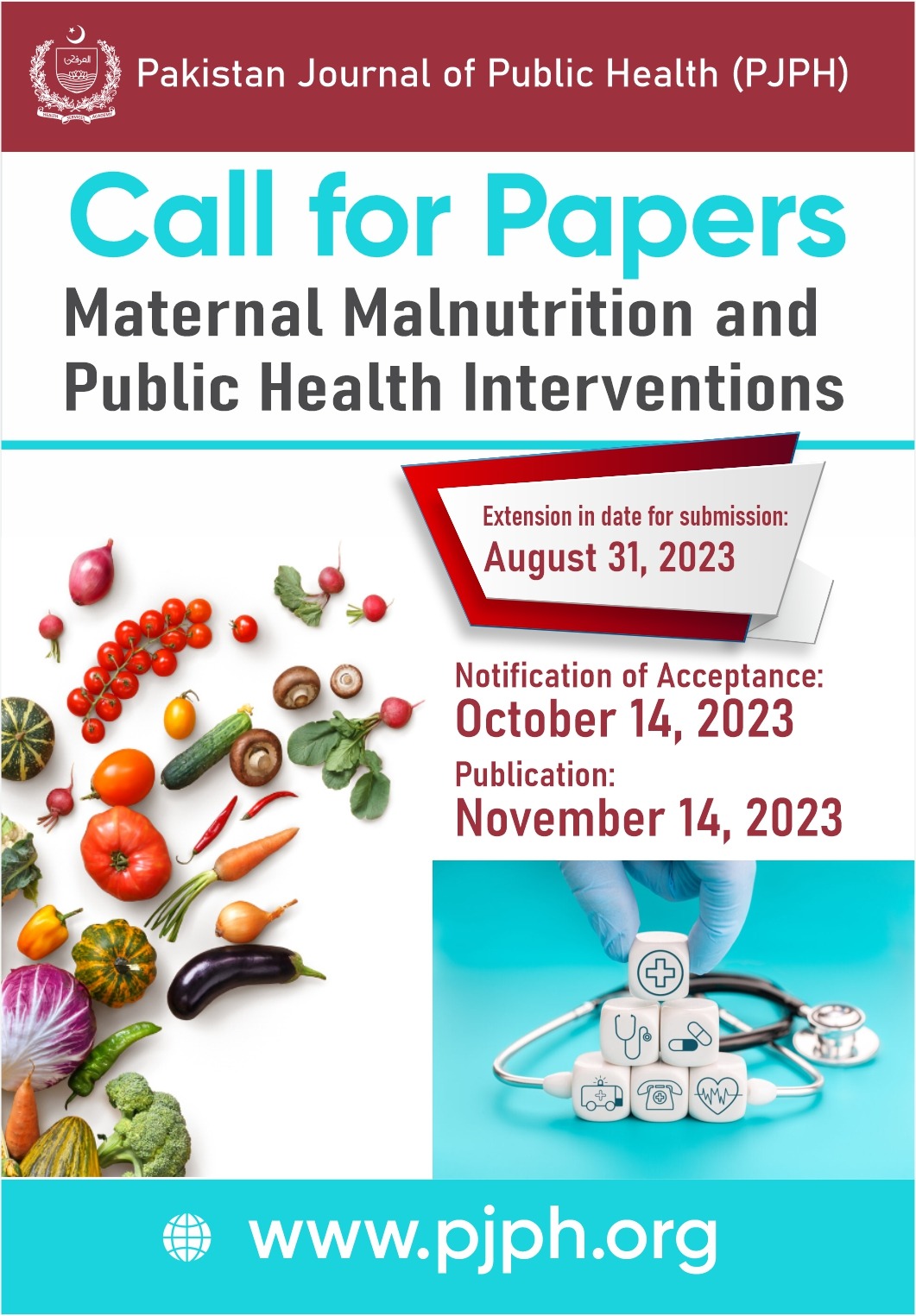Frequency of Anemia in Hospitalized Children Ages 0-12 Years and Associated Factors: A Cross-Sectional Study
DOI:
https://doi.org/10.32413/pjph.v12i4.817Keywords:
Anemia, demographic data, prevalence, anemia in children, associated factorsAbstract
Background: Anemia affects the psychological and physiologic well-being of children worldwide. In Pakistan, anemia among children and its associated factors is scarcely studied and the available knowledge is not up-to date. This study aims to better understand the anemic burden among pediatric population in our country.
Methods: Cross-sectional study of 1 month was conducted from January to February 2020 comprising 299 children who were hospitalized in a tertiary care hospital with ages from 1 month to 12 years, located in Lahore. Analysis of different demographic data, breast feeding duration, age, nutritional status, gender, iron supplementation, solid food introduction, disease of diagnosis and other background parameters in association with hemoglobin level is done in this article. We performed chi-square analysis and logistic regression to assess anemia with related factors.
Results: Overall percentage of non-anemic and anemic children were 56.9% and 43.1% respectively among whom male children were 62.4% and female were 37.6% anemic. Among anemic patients, 26.7% and 45.5% of children who were admitted suffered from mild and moderate anemia, respectively. The most affected age group was 6-59-month-old. There was a 9 times higher risk of anemia among well-nourished children as compared to over nourished children.
Conclusion: The group mostly affected by anemia is of age between 6 to 59 months. To combat this crisis, certain measures are required as exclusive breast feeding for 6 months, weaning at age of 6 months and iron supplementation if iron requirements are not fulfilled by diet for children.
Downloads
Published
Issue
Section
License
Copyright (c) 2023 Hajrah Shahid, Muhammad Haseeb Amjad Butt, Fatima Faheem, Nawal Kaleem, Azmat Ullah Khan

This work is licensed under a Creative Commons Attribution-NonCommercial 4.0 International License.






